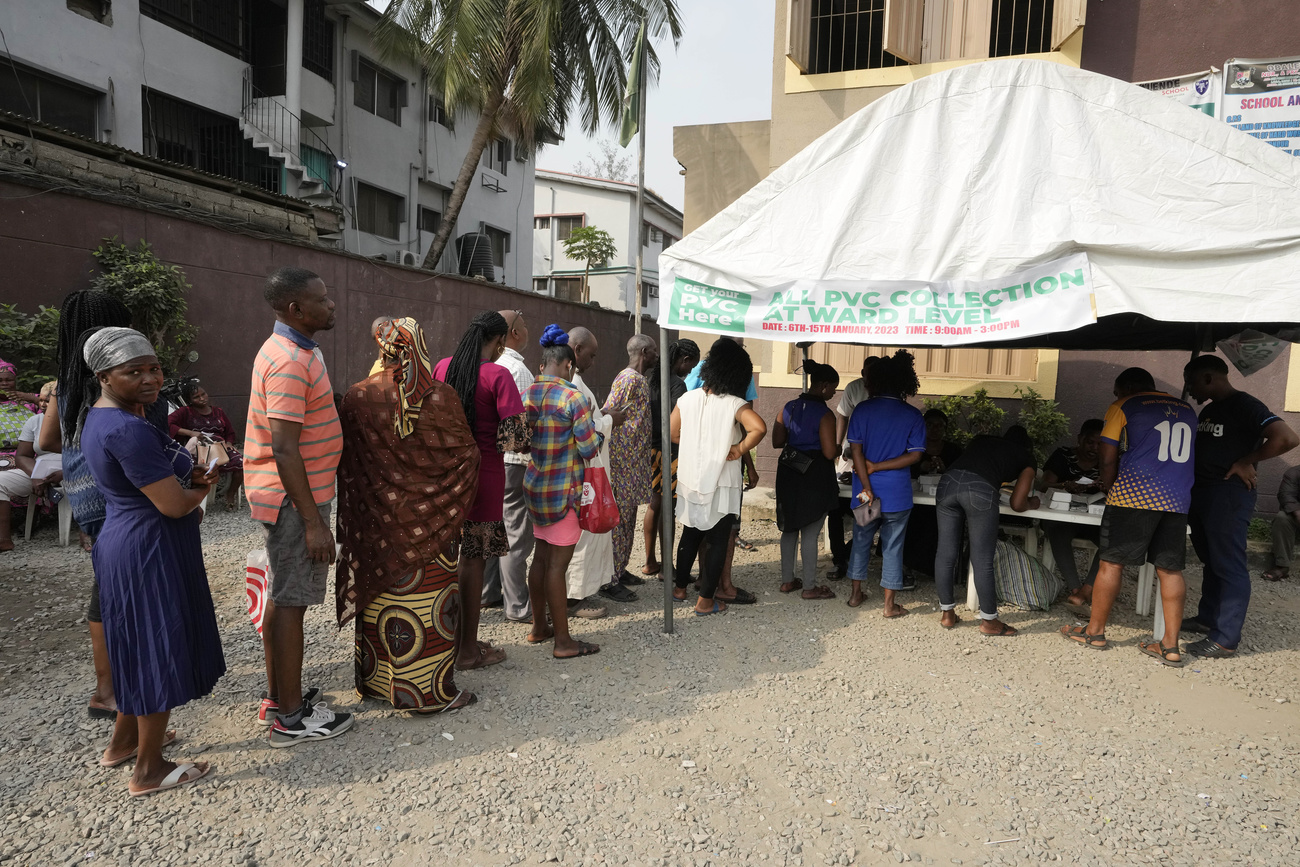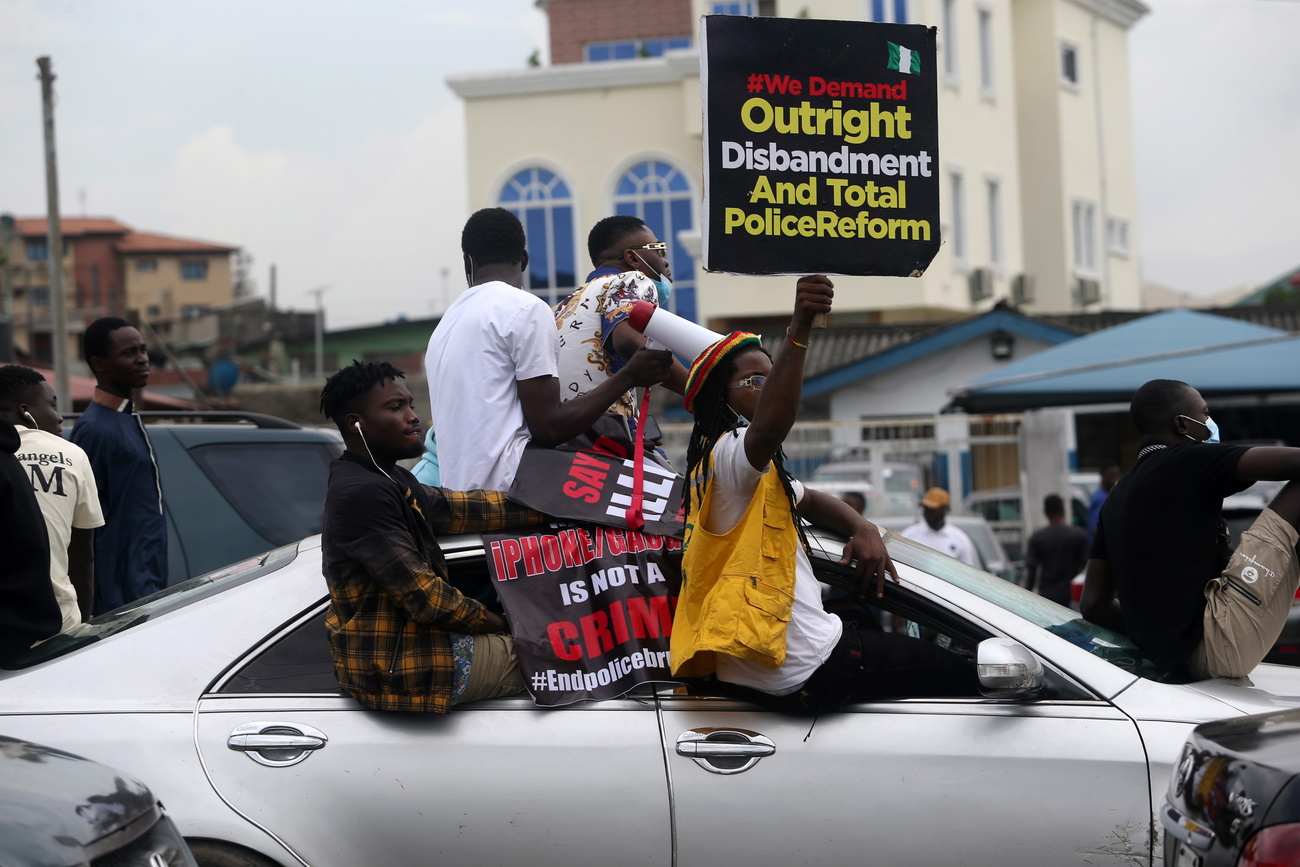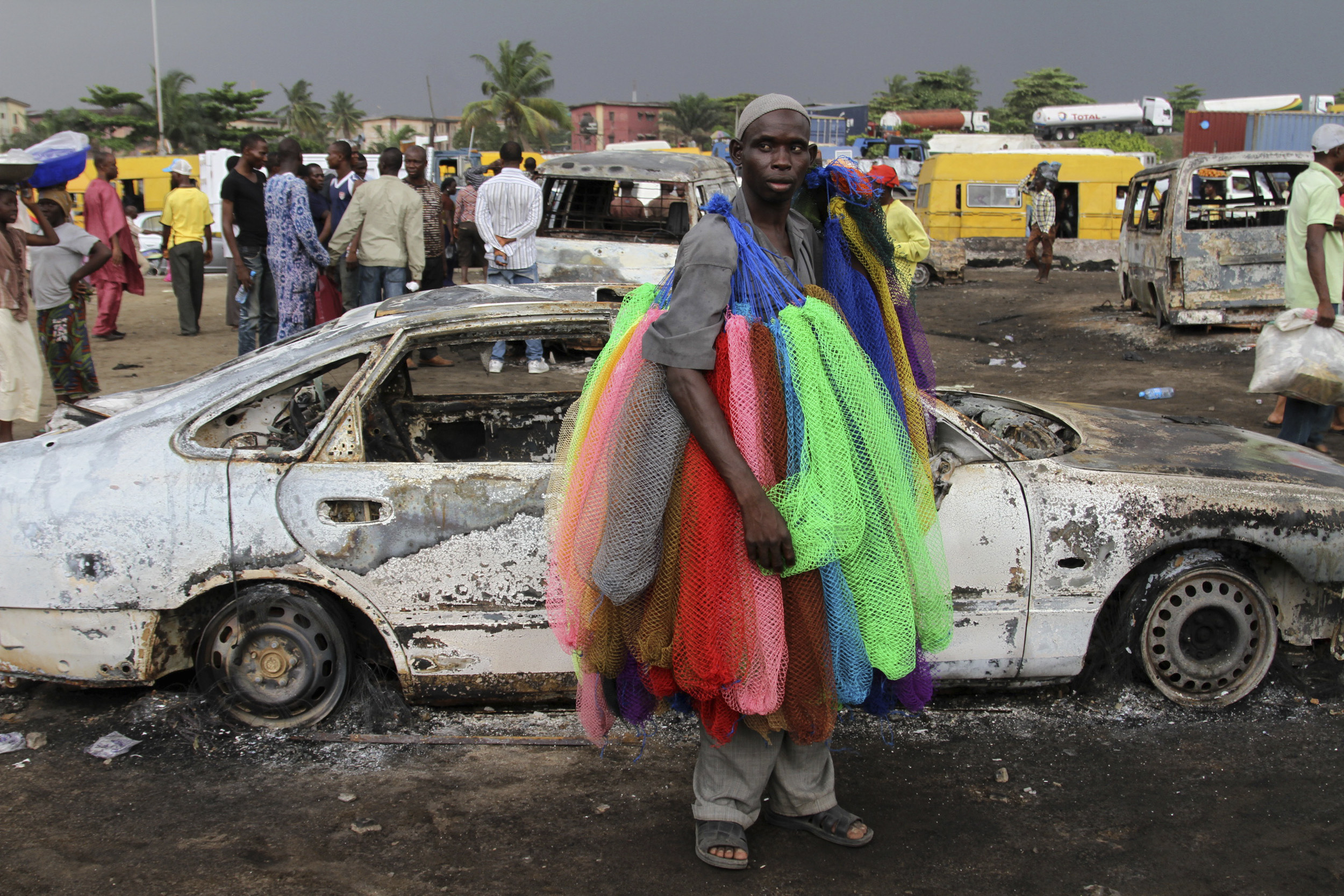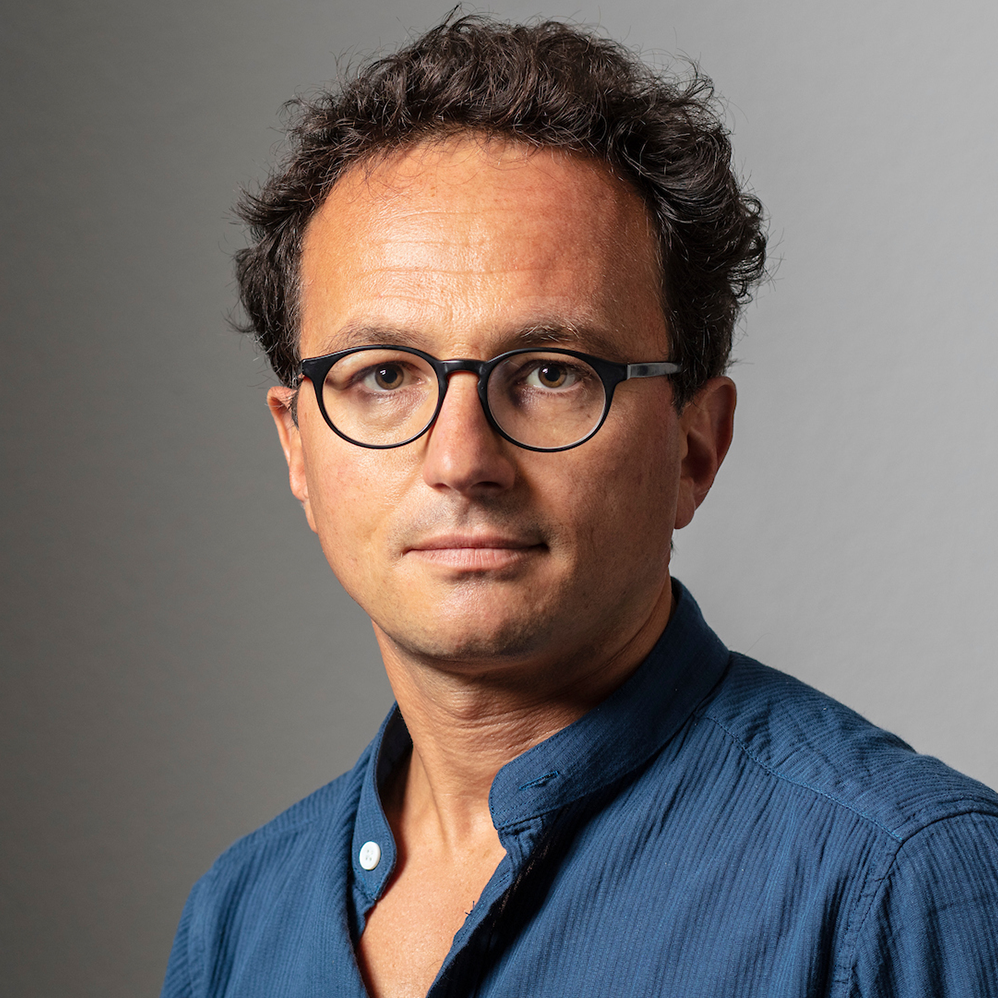
‘The world can’t ignore things that are happening in Nigeria’

The upcoming elections in Nigeria are particularly important for young people, women and the population in unstable regions, explains Medinat Malefakis, an expert on security, terrorism and peacebuilding, at the federal technology institute ETH Zurich.
But for the 17 million Nigerians who, like Malefakis, live outside Nigeria, this election is also associated with hope.
Dr Medinat Abdulazeez Malefakis (born 1988 in Kaduna, Nigeria) is a global research and policy expert on terrorism, crisis, peace-building and humanitarian displacement. She was the crisis and humanitarian displacement information analyst for West, East and Southern Africa in the Norwegian Refugee Council’s ACAPS programme.
Before that, she was a global postdoctoral researcher at the Berlin Social Science Centre (WZB), a research fellow at the United States Institute of Peace’s RESOLVE Network, and a junior researcher at the Max Planck Institute in Halle (Germany).
Malefakis joined NADELExternal link (the Center for Development and Cooperation at ETH Zurich as a Senior Lecturer in July 2022, having been a Research Fellow at ETH Collegium Helveticum. Her focus areas at NADEL is conflict, terrorism, peacebuilding, humanitarian displacement, and development cooperation in fragile contexts. Her professional work and academic research have focused, among other topics, on Boko Haram’s terrorism in the Lake Chad Basin of West Africa, Northern Ethiopian conflict, social media and the #EndSARS conflict in Nigeria, as well as reintegration and rehabilitation of conflict victims.
Source: ETH ZurichExternal link
SWI swissinfo.ch: On February 25 Nigeria is electing a new parliament and president. What’s at stake in this election?
Medinat Malefakis: For any Nigerian there’s a lot at stake. An election is always influenced by a lot of vested interests – whether it’s ethnic or religious. What’s special with this election is the high number of registered voters: 93 million people out of a population of 206 million – almost nine million more than last time. For the young population, too, there’s a lot at stake including youth empowerment, as well as what young people will do with their high numbers as registered voters.
SWI: What does ‘youth empowerment’ involve?
M.M.: Almost half of Nigeria’s population is young, but unfortunately Nigerian society is very gerontocratic – in all aspects: elderly people are supposed to be respected and to be listened to, also in politics. Young people are not expected to be in decision-making positions. In the last years this caused a lot of tensions. Now young people are eager to know whether this will be the election to change things. Will power change hands to empower young people?
SWI: And can you see this happening?
M.M.: It will change. Young people have an advantage in numbers: about 37 million – almost 40% – of the registered voters are young people, 18- to 40-years-old. No other age group has such a high proportion among the voters.
Different groups of people care about these elections for different reasons. For those affected in their everyday life by violence and conflict, the most important thing is whether the election is going to change the insecurity. Whether it’s caused by Islamist Boko Haram and ISIS-WAP in the north or the separatists in Biafra and the Yoruba nation agitators in the southwest.
Furthermore, it’s an important election for women. For the first time in a while, a female candidate is a frontrunner for the position of state governor in Adamawa state in the north, a region that is considered very patriarchal, very traditional and conservative, very religious and very hegemonic. If she wins that election and becomes the first elected female governor governing a northern state, there’s going to be an unprecedented forward push for women in politics all over Nigeria.
There are also issues with the change of currency – it’s a total mess. To sum up, it’s a very important election.
Three candidates have realistic chances of becoming president, according to polls. Incumbent president Muhammadu Buhari cannot run for a third term. Bola Tinubu, 70, former governor of Lagos, is running for his party, the All Progressives Congress.
Competing in Nigeria’s two-party system is the People’s Democratic Party, which provided the president from 1999 to 2015. The 76-year-old Atiku Abubakar is running for the centre-right party.
Both favourites are accused of nepotism and corruption, which they deny. The 61-year-old businessman Peter Obi is generating hype on social media and is the hope of many young people – but his election would be a surprise.
SWI: You are an academic studying international security and terrorism. Have you got a specific professional perspective on this election?
M.M.: The security issues also affect the voting: displacement and disenfranchisement is a major impact of these conflicts. Currently there are over 240,000 Nigerian refugees living in Niger, Chad and Cameroon, and there are about 1.9 million internally displaced people in Nigeria forced to move by insecurity issues such as Boko Haram. Most of them won’t be able to vote.
Boko Haram or ISIS-WAP currently control two or three local governments in Borno state. No election officials will get there, like in parts of Kaduna and Niger state, where bandits have control. The separatists in Biafra have also announced that there won’t be an election in parts of eastern Nigeria. They already attacked electoral offices, so people won’t vote there out of fear. This is concerning.
SWI: Why should someone in Switzerland care about this election?
M.M.: Nigeria is not only the most populous country in Africa, but also the seventh most populous in the world – and the projections say it’ll surpass the US shortly before 2050. The world cannot ignore things that are happening in Nigeria. Apart from that, Nigeria has the largest economy in Africa, a nominal GDP of over $500 billion (CHF460 billion) and its economy is still growing. For trading partners, namely the US, India and the UK, things that can cause instability in Nigeria, such as elections, are important.
Even if you’re not interested in the country, you have to be interested in the direct and indirect correlations that instability in Nigeria causes, for example for an important donor in West Africa such as Switzerland. Boko Haram started in Nigeria, but it spread to Niger, Cameroon and Chad. Then think of the diaspora: 17 million Nigerians are scattered in different parts of the world. What happens in Nigeria should be important to all the countries wherever they are living.
SWI: Are Nigerians in Switzerland following the elections closely?
M.M.: Yes. There aren’t many of us – just 2,100 – but those who are here have a lot of connections to Nigeria, so it’s impossible to detach yourself from the goings-on in the country. I know a lot of Nigerians here who follow Nigerian radio and TV stations and look closely at what the issues on the ground are, what the parties are discussing.
SWI: They do this despite diaspora Nigerians not being allowed to vote?
M.M.: Unlike in other countries, like Kenya, Nigerians don’t have diaspora voting yet. The independent national electoral commission (INEC), which organises elections in Nigeria, says it is ready for diaspora voting. But for some reason the parliament doesn’t approve it. There’s a huge amount of people who can’t vote, if you compare the 17 million living abroad with the 93 million registered voters. It’s not an ability issue, because INEC says it is ready, but a legal issue.
SWI: But politicians could change the laws, couldn’t they?
M.M.: If they wanted to. The current government and the diaspora have had certain issues. They assume the diaspora is younger, more educated, less easy to influence and much more likely to have an open perspective. And then the diaspora’s donations were important to the EndSARS-movement. SARS is the name of a special anti-robbery police squad. The EndSARS-movement, led by young people, was basically against police brutality. It existed for a while but peaked with big protests in 2020. Eventually the Nigerian government crushed it and a lot of protesters were killed. I think the diaspora’s support for EndSARS is why the current government may not be interested in allowing the diaspora to vote. We as Nigerians living abroad therefore ask ourselves whether this is the election that gives us the right to vote.

SWI: You write a columnExternal link in which you chronicle your daily life in Switzerland from a Nigerian point of view. In one column you said you already feel the “Swiss in you”. Do you also experience that when it comes to politics?
M.M.: I’ve been living in this country for some years and there’s no escaping how Switzerland influences how you see a lot of things. You can’t control the Swiss in you, no matter how hard you try. I write this column to express a mixture of admiration, criticism and bewilderment. Regarding politics, of course I wonder how the Swiss get to the point of trust in their electoral system that people can vote from home using a letter.
In Nigeria there’s a lot of good things in theory, but in practice a lot of things don’t work. I’ll give you an example: the independent electoral commission in Nigeria has put in place a lot of technological advances, like BVAS, a biometric system to recognise voters by their faces and thumbs. A duplication of votes is ruled out. A voting by proxy won’t be possible. And the results in real time give more transparency and trust. In theory everything should be fine now. Still the machines can malfunction, electricity can cut out.
And then there’s the human factor: do the electoral officials have 100% integrity? The Swiss have managed the human factor. There’s trust. Swiss people put their vote in the post without any thoughts or worries. As a Nigerian, I still worry about the human factor.
Edited by David Eugster

More
A fresh start in Nigeria, brought to you by Switzerland

In compliance with the JTI standards
More: SWI swissinfo.ch certified by the Journalism Trust Initiative





























You can find an overview of ongoing debates with our journalists here . Please join us!
If you want to start a conversation about a topic raised in this article or want to report factual errors, email us at english@swissinfo.ch.